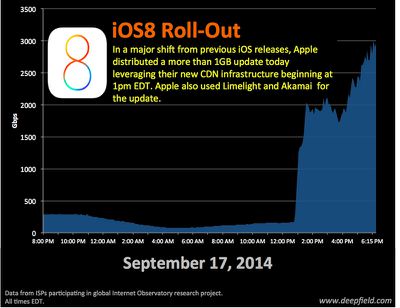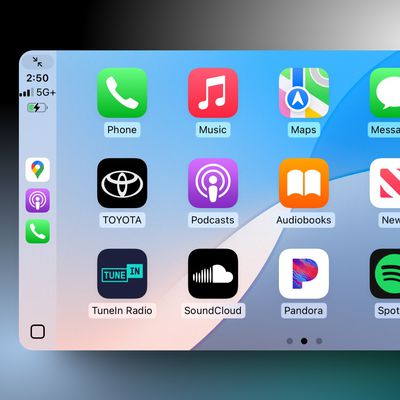According to data from internet research firm DeepField, Apple relied on its content delivery network along with Akamai and Limelight to handle the rollout of iOS 8 publicly this week (via The Wall Street Journal). The release of iOS 8 caused web traffic to more than double in some areas as millions of iOS users rushed to update their iOS devices.

“It really was a significant coming out party for the Apple CDN,” DeepField Chief Executive Craig Labovitz said. “This is definitely a realization that Apple is not just a software player. They’re not just a maker of PCs. They have an Internet backbone and an international Internet presence.”
Apple has not commented publicly on its content delivery network, but the company reportedly has been working on the network for several years. The CDN was believed to have gone live in the US and Europe in July of this year when Apple used the network to deliver smaller OS X updates.
In the future, the CDN likely will be used to delivery software updates, such as the upcoming OS X Yosemite release, to customers worldwide. Apple also is expected to gradually migrate its iTunes and App Store away from Akamai and other Level 3 CDNs as it strives to deliver data reliably to its customers by bringing this content delivery under its direct control.























Top Rated Comments
While I was updating my iPad to iOS 8, I kept hearing a woman speak in Chinese in only my left ear. Makes sense now.
Glassed Silver:mac
Live events are a bit trickier. For CDNs, the package can be propagated out to all the various nodes well in advance of launch so they're ready to go and "independent". For Live events, all those nodes would be hammering the source node for the video stream. Even if you put in multiple levels to keep the numbers down, you're just adding more latency and more points of failure.
It's funny how a good, old-fashioned technology like a TV broadcast is still so much superior in many ways to the latest tech.